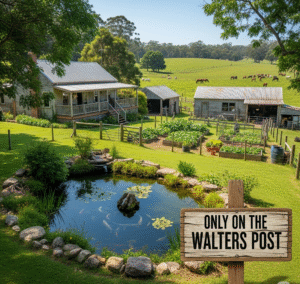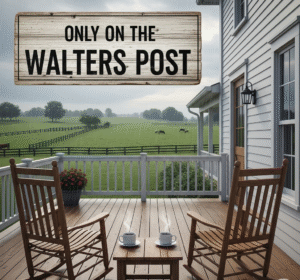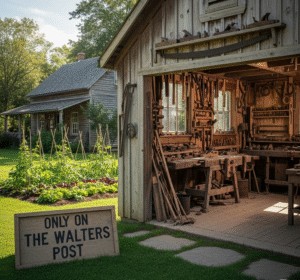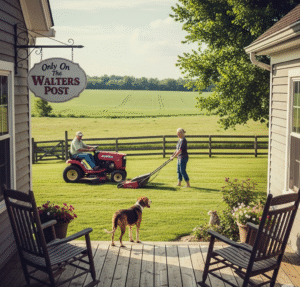Click on Image to Enlarge
Good Morning… the air is quiet, and it feels like a good day to get out to the workshop, or maybe even dig around in the garden a bit.
Well, it’s looking like the rain has finally left us, and the sun is starting to break through the clouds. A welcome sight, I’d say.
Forecast for Port Loring, Ontario
Today (Friday, June 20)
- Daytime: A mix of sun and cloud, with things warming up nicely to around 72 °F (22 °C).
- Nighttime Temperatures: Dropping down to a cooler 51 °F (11 °C), which should make for a good sleeping night.
Saturday (June 21)
- Daytime: Cloudy skies, with a few showers and maybe a thunderstorm early on. Breezy through the afternoon, with highs reaching 78 °F (26 °C).
- Nighttime Temperatures: Holding warmer at around 65 °F (19 °C), still a bit humid and damp in spots.
Sunday (June 22)
Nighttime Temperatures: Staying warm and sticky near 66 °F (19 °C)—a sign summer’s really settling in.
Daytime: A muggy one on the way. Cloudy early, then maybe a break of sun before a few pop-up storms roll through in the afternoon. Highs climbing to 87 °F (31 °C).
So, by the looks of things, the warmer daytime temperatures are here to stay for a while.
Highway 522 was still pretty quiet yesterday, though the weather wasn’t all that great, which likely kept folks at home. Out here in the country, that suits us just fine as it means more peace and quiet, which is what most folks living here enjoy. Least my wife and I do.
Bug Report:
Well, there weren’t any bugs to speak of yesterday. With the rain, everything with wings seemed to take the day off. But this morning? The mosquitoes are back at it, raising a bit of hell. They will likely settle down once the sun gets a little higher in the sky.
Of course, that is usually when the deer flies punch in for their shift.
Actually, I have been pretty lucky over the years, as for the most part, none of them actually bite me. They just buzz around my face like they are trying to tell me something. Not sure why that is, but my wife says it is because I am not as sweet as most folks. Could be true.
On another note, with it being a rainy day yesterday, I spent most of my time right here at the computer. Got a couple of stories written up in the morning, and by afternoon I started working on setting things up so I can share my stories on my blog, YouTube, and a few other spots.
What I’ll be doing is taking one story each week from my collection and turning it into a podcast. I used to do that a while back, but after a time I drifted away from it, tried making videos instead, and then drifted from that too. So now I’m heading back to podcasting, which means I’ll be reading my stories out loud once again.
Keep an eye out for them on my YouTube channel and right here on the blog.
So, what are you up to today, GW?
Well, today I’m planning to work on my bird feeder. I had to take it down the other day since it needed a bit of repair. I’ve been experimenting with different ways to keep the larger birds out while still letting the smaller ones in to feed. It’s been a bit of a challenge, but I think I’ve finally figured it out.
So I’ll get it fixed up and back on the post outside our living room window. That way, my wife and I can sit and watch the show throughout the day. We sure enjoy seeing all the different kinds of birds that come to visit.
So yep, that’s what I’ve got on the go today.
With that I’m off for my morning breakfast once again that my lovely wife has put together for me, and then I’ll see what the day has in store other than what I have planned. Every day is a mystery waiting to be made into something.
Until the next time: Keep Your Minds Open & Your Stories Alive. GW







